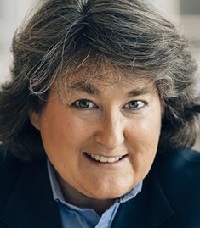Capitalism and Jewish Values
 There’s a quote I love from the famed Jewish philosopher Martin Buber: “All journeys have secret destinations of which the traveler is unaware.”
There’s a quote I love from the famed Jewish philosopher Martin Buber: “All journeys have secret destinations of which the traveler is unaware.”
Twenty-five years ago when I started working on Wall Street, I had no idea that my journey would find me running a firm that’s about impact investing, social justice, environmental awareness and governance. I also had no idea that my Jewish heritage and its focus on “Tikkun Olam” – repairing the world — would become so intertwined with my professional mission.
There’s another quote that I find so relevant to my work, from an ancient rabbi, Rabbi Tarfon. He said, “It is not incumbent upon us to complete the task, but neither are we at liberty to desist from it.” In other words, we can all do our share. For my share, I think about capitalism and economics and finance every day, and I think they happen to be really powerful tools. I also believe that impact investing, sustainable investing, is entirely consistent — in fact, it’s the same — as practicing Jewish values.
For example, consider Noah. I think we all know there was an ark and lots of animals and Noah did something good because God asked him to. But was Noah a righteous man, by which I mean serving as a force for justness in the world? He was certainly blameless; he didn’t partake in the evil that caused God to plan the flood. But was he righteous? According to Rabbi Tarfon’s teaching, if Noah had no power or resources to fight evil, well then, he was blameless. If he had the tools and the power, and still stood by, he might be blameless but he would not be righteous. That’s the lesson I take from Judaism and apply to my work. We have the tools. Money is a tool. Investing is a tool. We use those tools to bring about as much good as we can, to be as righteous as we can.
We’re in a time of unprecedented challenges. Human trafficking, slavery, suffering persists. California is burning, the Arctic is melting, and a number of keystone species such as bees are at risk of extinction. We know that in the next couple of decades there’s going to be more plastic in the ocean than there are fish right now. Income inequality is creating social stress in many areas of the world.
There’s also some unprecedented good, and here’s where the capital markets come in. We’re seeing asset owners, asset managers, investment banks, accounting firms, regulators, exchanges, ratings agencies — all these pieces of the capital markets — start to move in the same direction at the same time, in the direction of seeking sustainability.
When it comes to investing, we need to move not millions, not billions, but trillions of investment dollars towards environmental and social impact. And you cannot move trillions until you engage the whole private sector, the entirety of the capital markets. We need collaboration. We need understanding, we need transparency. And the good part is they’re coming. It’s happening.
Here’s another quote worth citing: “To feel much for others and little for ourselves; to restrain our selfishness and exercise our benevolent affections constitute the perfection of human nature.” Another rabbi?
Actually, that’s an economist: Adam Smith. (I think Adam Smith is poetry.) People typically associate Adam Smith with The Wealth of Nations and the concept of “the invisible hand,” which says that markets will work it out themselves. The only thing Adam Smith forgot with regard to the invisible hand is that there are externalities, negative externalities that companies produce when they do their thing.
Milton Friedman is another economist who forgot something. When a board of directors thinks that their job is solely to maximize shareholder value, they cite his work. They say, that’s all we can do, that’s what we have to do, it’s a fiduciary obligation. Well, two words that Milton Friedman left out were “long term.” We need to maximize shareholder value over the long term. Friedman also said, “Most economic fallacies come from a tendency to assume that there’s a fixed pie, that one party can gain only at the expense of another.” And so Milton Friedman knew what it could, what it should be like when it comes to capitalism and the capitalist system.
When it comes to negative externalities created by business activity, and when it comes to creating value over the long term, Jewish values provide a roadmap. In fact, the best quote of all about capitalism actually does come from a rabbi. The great Hillel said, “If I am not for me, then who will be? But if I am only for me, then what am I? And if not now, then when.” To me, this is the essence of Jewish values, and the essence of how capitalism can grow the pie for all. Now is the time.
Erika Karp is the founder, and CEO, of Cornerstone Capital Group. Among other awards, Karp named to AdvisorOne’s “Top 50 Women in Wealth,” (2011). She is also a member of the World Economic Forum’s Global Agenda Council on Financing and Capital.



